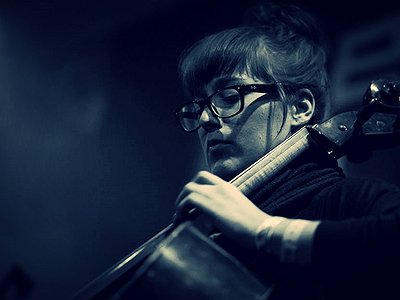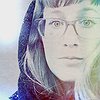Part 2
With more and more musicians creating than ever and more and more of these creations being released, what does this mean for you as an artist in terms of originality? What are some of the areas where you currently see the greatest potential for originality and who are some of the artists and communities that you find inspiring in this regard?
I think we are very lucky to live in a time period when people who have music as a passion can create their own home studios without having to be a professional studio. More people have a chance to express themselves through recorded/produced music than before. It gives a chance to make music without having to think about how many albums you are going to sell and therefore makes it a more free artform. As an artist it brings the challenge of being original and it pushes you to try new things. For me it meant that I could try new instrumentations, record my own soundbank and field recordings to capture a unique moment and create your own color.
Bedroom community is definitely an inspiring collective of artists who are going further in new music. They are really creative and bring a great sound to modern music. I like the fact that they are composers and performers and therefore have a close relationship with the two “sides” of music.
How strictly do you separate improvising and composing?
I do separate composing, what I call half-improvising and improvising depending on what I want to achieve but usually it is combinations of the three. Composing is when I sit at the piano with an empty score, a pencil and eraser or when I a do field recording. This is a composing process, using a tool, making research and trying to develop it in a context. Then the structure is written down but I give space to work and experiment.There is half-improvisation where I give a certain freedom in the rhythm and intensity to catch a unique moment and the color of the musicians that I am working with. Finally there is free improvisation when I start working in the DAW, trying different effects and moving samples which is a huge part of the creative process. It gives a new life to the recorded material.
How do you see the relationship between sound, space and composition and what are some of your strategies and approaches of working with them?
Sound and space have an important relationship in my composition on individual parts and as a whole. In general I use a combination of instruments and field recording. For example on one hand when I write for instruments I imagine a particular place/space which affects the tempo, phrasing and general feel of the material I use and on the other hand I use field recording which already has a particular space and sound in the recorded material. The relationship then between instruments and field recording become an integral part of the composition as do the combinations of space/sound.
What's your perspective on the relationship between music and other forms of art – painting, video art and cinema, for example – and for you and your work, how does music relate to other senses than hearing alone?
I think music can form a beautiful marriage with other art forms. It can dramatically change your perception as it makes your senses more powerful and strengthens the experience. For me music/sound can stimulate all the senses, sound, vision, smell/taste and I feel it can also affect your state of mind.
What's your view on the role and function of music as well as the (e.g. political/social/creative) tasks of artists today - and how do you try to meet these goals in your work?
I don’t think music has any one specific role, political, social or creative but it is a means to express oneself and should stay free that way. When I work I don’t have in mind anything connected to political or social functions - I experience my work as a personal research about sounds of nature and acoustic instruments together. I feel the role of music for me is an exploration of my curiosity of sound and it is this that I want to share with others.
Listening is also an active, rather than just a passive process. How do you see the role of the listener in the musical communication process?
The listener is indeed a necessary part of the communication process. It is because of them that the work comes to life. Today with social media, listeners and artists are closer to each other so artists get much more feedback now than before. Positive and negative comments here and there can only make you grow, develop and be aware of the effects of your music on the listener.
Reaching audiences usually involves reaching out to the press and possibly working with a PR company. What's your perspective on the promo system? In which way do music journalism and PR companies change the way music is perceived by the public?
If you want to bring your music to a wider audience, you kind of have no choice but to team up with someone. There is so much happening all the time that being independent in promoting your music is really difficult. Getting the support you need also gives you more time to focus on the important thing, making music. But creating music is only half the work but the other half is reaching the public so you need a good promo system to make the wheels turn.
Do you have a musical vision that you haven't been able to realise for technical or financial reasons – or an idea of what music itself could be beyond its current form?
Yes, I daydream about having access to a professional studio to record small ensembles. It is a financial issue ... But it does not stop me from doing what I want, I always find a way. I think I just need to be patient and keep working hard and I will get there in the end.
If you enjoyed this interview with Veroníque Vaka, you can find out more about her on her tumblr and soundcloud page. Or become friends with her on Facebook.






